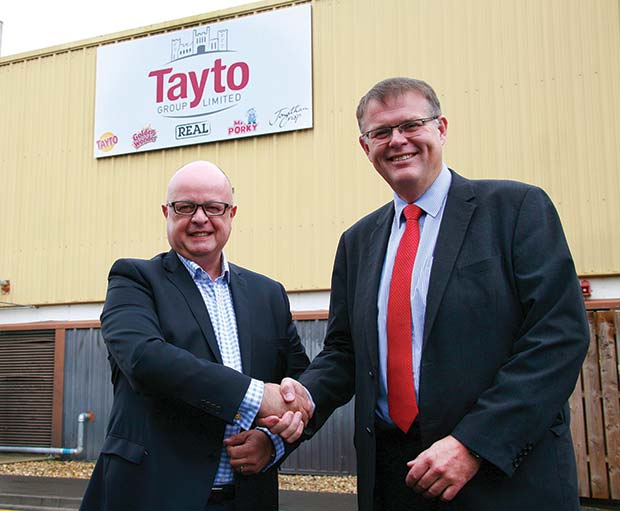Collaboration is the new competition in the war on waste (WOW) as businesses pool ideas and resources as part of an initiative to prove once and for all that profitability and sustainability are not mutually exclusive – but one and the same thing.

Sharing intelligence and best practice is the only way to cut costs and ‘carbs’ – the massive carbon footprint created by commercial supply chains – according to the Pooling Partners, the pan European company whose products move millions of fresh and ambient goods from manufacturers to retailers’ shelves.
Phil Storer, UK & Ireland director for Pooling Partners who coined the term ECOnomics to best describe the costeffective and carbon reducing strategies behind the retrieve, repair and re-use nature of the circular economy, argues that partnership working cuts costs and boosts margins at the same time as eliminating waste and promoting sustainability in the supply chain.
“Short termism in supply chain modeling has been used in many industries where just in time delivery (JiT) or supply in line (SiL) are utilised to meet tight deadlines, but the concepts create massive carbon footprints with many vehicles returning empty.”
Now those same businesses are working in a more collaborative way to remain profitable and sustainable in the longer term – the concept of ECOnomics. This is not simply supply chain theory, but a commercial reality with one of the largest manufacturers of snack foods in the UK using ECOnomics in its escalation in the War on Waste (WOW).
Tayto Group Ltd (TGL), which is best known for manufacturing the Golden Wonder crisp brand, has struck a new deal with Pooling Partners to ensure efficient delivery of goods to retailers following year on year growth, which has seen pallet movements double since 2009.
Beginning work with the family-owned snack food giant back in 2006, Pooling Partners is involved in the TGL supply chain from the point of production – transporting half a million pallets of Golden Wonder and own-brand products to retailers each year. Like the majority of manufacturers, waste arising from the production process has been a problem for TGL and reducing it has become a major focus.
Using state of the art Radio Frequency Identification (RFID) technology, the organisation has been able to pinpoint the areas where waste is being generated and identify solutions to combat it.
These targeted improvements have reduced waste by over 25% thanks to increased accuracy of reporting through bin, line and container weights – resulting in a huge reduction in transport costs. The average container weight has increased by over 200% – meaning more products are on the move at any given time.
Working in collaboration with Pooling Partners and using its ‘Trade Direct’ model, pallets are deployed directly from retail units to TGL at a reduced cost to speed up the process and eradicate ‘empty running’ – the wasteful transport miles used on the return leg. This has reduced thousands of unnecessary journeys every year.
Commenting on the relationship with Pooling Partners, Nigel Smith, supply chain director at TGL, said: “We have been particularly impressed by Pooling Partner’s willingness to assist us in reducing the ‘WOW factor’. The organisation has added a great deal of value to our supply chain.”
This transparent approach to business has helped the partnership to increase inbound pallets by 20 per cent since 2012 – now moving a peak of over 525,000 annually. At a time of mounting cost and margin pressures on the retail sector, Pooling Partners, argues all businesses should reengineer their supply chains to maximise returns – not just to their profits, but for total supply chain transparency and environmental sustainability – from farm to fork or pallet to palate.
The company which is the only pallet company to manufacture its own products, also retrieves, repairs and repatriates pallets from all over Europe through a rental model that ensures it can track them at all times – a model, it suggests, could help retailers overcome some of their biggest financial challenges.
Pooling Partners argues that ECOnomics is the essential science of cost-effective ‘mapping’ that will drive the new smart technology economy.
“This will be important for reducing product movements, waste and carbon footprints as well as cutting costs – hence the term ‘ECOnomics’, because it benefits both the balance sheet and the environment,” added Storer.
“We are not far away from turning this concept to a reality, but we do need greater cross functional collaboration to make it happen. Marketing and merchandising have to be on the same page as the supply chain teams, and this is beginning to happen through broader board engagement which will in turn drive better shareholder value.”




Comments are closed.